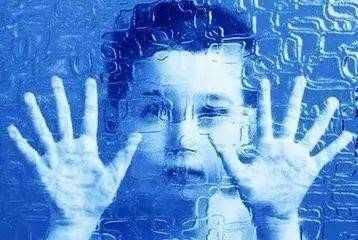During the process of children’s growth, autism, as a complex neurodevelopmental disorder, is gradually receiving widespread attention from all sectors of society. Autism not only affects children’s social, language, and cognitive abilities but may also have a profound impact on their future lives. Therefore, emphasizing the early detection and intervention of autism is particularly important. This article will delve into why early detection and intervention in autism are necessary and analyze the early symptoms of autistic children in detail.
Why emphasize early detection and intervention in autism?
High brain plasticity: Early childhood, especially between the ages of 2-3, is a critical period for brain development, during which the brain’s plasticity is exceptionally high. This means the brain is more capable of adapting and changing in response to external stimuli. Early intervention can better utilize this period, helping autistic children establish basic social, communication, and cognitive skills, laying a solid foundation for future learning and life.
Developmental windows: There are specific learning and developmental windows in early childhood, meaning certain learning and developmental tasks are easier to accomplish during specific time periods. Early intervention in autism takes advantage of this window by using specially designed intervention plans to help children develop social and communication skills and improve overall developmental levels.
Promoting comprehensive development: Early intervention focuses not only on the language and social abilities of autistic children but also on emotional regulation, behavior management, and other aspects of development. This helps children achieve balanced development in various areas, thereby improving their quality of life and social adaptability.
Reducing family burden: Caring for and educating autistic children often puts immense pressure on families. Early intervention not only aids children’s development but also helps parents better understand and respond to their children’s needs, enhancing their educational abilities and confidence, thus reducing the psychological and economic burdens on the family.
What are the early symptoms of autistic children?
The early symptoms of autistic children are varied but can typically be summarized in the following aspects:
Social obstacles: Autistic children often lack interest and ability in establishing normal interpersonal relationships. They may not enjoy playing, sharing, or communicating with others, and they may have a weaker sense of dependence on their parents. Additionally, they might also lack the ability for eye contact and facial expression communication.
Language barriers: Delayed language development is one of the common symptoms of autistic children. They may struggle to express their thoughts and needs correctly, and they might not understand others’ speech and instructions. Some children may even completely lose their ability to speak.
Narrow interests and stereotyped behaviors: Autistic children often show excessive interest and focus on specific things or activities, while showing little interest in what most of their peers find engaging. Additionally, they may display repetitive behavior patterns, such as fiddling with a particular toy or repeating a specific action.
Emotional and behavioral abnormalities: Some autistic children may have issues with emotional and behavioral abnormalities. They might be prone to outbursts, aggression towards others, or self-harm. At the same time, their emotional responses may also be relatively blunt or difficult to interpret.
In summary, autism is a neurodevelopmental disorder that requires early detection and intervention. By carefully observing children’s behaviors and performances and seeking professional medical help and assessment in a timely manner, better treatment and support can be provided for autistic children. Additionally, parents and all sectors of society should enhance their awareness and understanding of autism, creating a more inclusive and supportive environment for autistic children. 【For infringement, contact for removal】.


